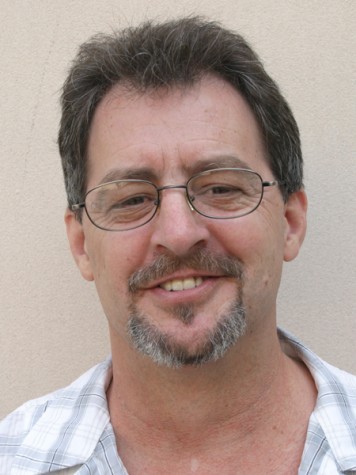Guest speaker Taja Mckinney Zisler of the Coalition to Abolish Slavery and Trafficking (CAST) urged a campus audience March 25 to take action against human exploitation.
The lecture entitled “Gender, Human Trafficking and Slavery – What Every Person Should Know” took place in Kreider Hall as part of Women’s History Month and the Humanities and Social Science Lecture Series.
“Human trafficking is the process by which a person is recruited to be controlled and held captive for the purpose of exploitation,” which is essentially a form of modern-day slavery, according to CAST.
Zisler emphasized that trafficking is “happening right here in Los Angeles, right now, right down the street.” Los Angeles is a main entry point for people who are trafficked. Zisler said people get sucked into trafficking by “answering yes to a simple question. Do you want a job?”
People believe they have been promised work but it turns into something entirely different.
According to CAST research, 86 percent of trafficking victims are women. Usually these women are promised work but when they arrive at the job they are forced to work long hours in often dangerous conditions for little to no pay. They are unable to leave because their passport is taken and they are often abused physically, mentally and emotionally.
Zisler told the story of what happened in El Monte in 1995.
For 8 years, 72 Thai women were held in an apartment building and forced to work 18 hours a day in a sweatshop producing clothing for local businesses. They were held captive by barbed wire, guards and dogs and had no contact with the outside world.
After two women escaped, the other women were rescued and the operation was shutdown.
Zisler described these women as, “Fearful for their life. They didn’t even have shoes on their feet. They were mentally and emotionally traumatized.”
It was after the El Monte incident that CAST was formed. In 1995 there were no effective o laws in America to protect those exploited by trafficking. It wasn’t until 2000, with help from CAST, that laws where drafted to give full protection and rights to the victims of trafficking.
CAST also provides assistance and rehabilitation for these victims. They provide legal assistance, shelter, skill building and assist in finding jobs and housing. CAST also does outreach and advocacy to make more people aware and involved in stopping this growing problem.
Today there are an estimated 27 million slaves throughout the world, equivalent to the population of Texas. Two million new people are enslaved every year, making human trafficking the fastest growing criminal enterprise. “Today you can buy a person for around $50,” said Zisler.
According to CAST, the highest percentage of victims in Los Angeles, are from Mexico with 22 percent. Guatemala follows close behind with 19 percent. Of those CAST has helped, 38 percent were involved in commercial sex trafficking, which is the most common trafficking industry in Los Angeles. Service industries and domestic servitude make up the next highest percent of trafficking industries, especially elderly care.
“Often cases [of human trafficking] have been found by community members,” said Zisler, which is why she stressed getting the word out about human trafficking.
“‘Never underestimate the power of a small group of people to change the world,’ said anthropologist Margaret Mead,” according to Zisler, who also encouraged everyone to become a part of stopping human trafficking, even if just by spreading the word.
“Tell your roommate, friends, parents,” said Zisler. “Harness your anger against this [injustice] and do something about it. You can do it, [CAST] can help. We can provide you with helpful resources.”
CAST is now starting college chapters which advocate and raise awareness about human trafficking on their campuses. There is already a chapter at Occidental College. Zisler stressed that everyone should do what they can to help.
For more information on CAST visit www.castla.org or call (888) 539-2373.

